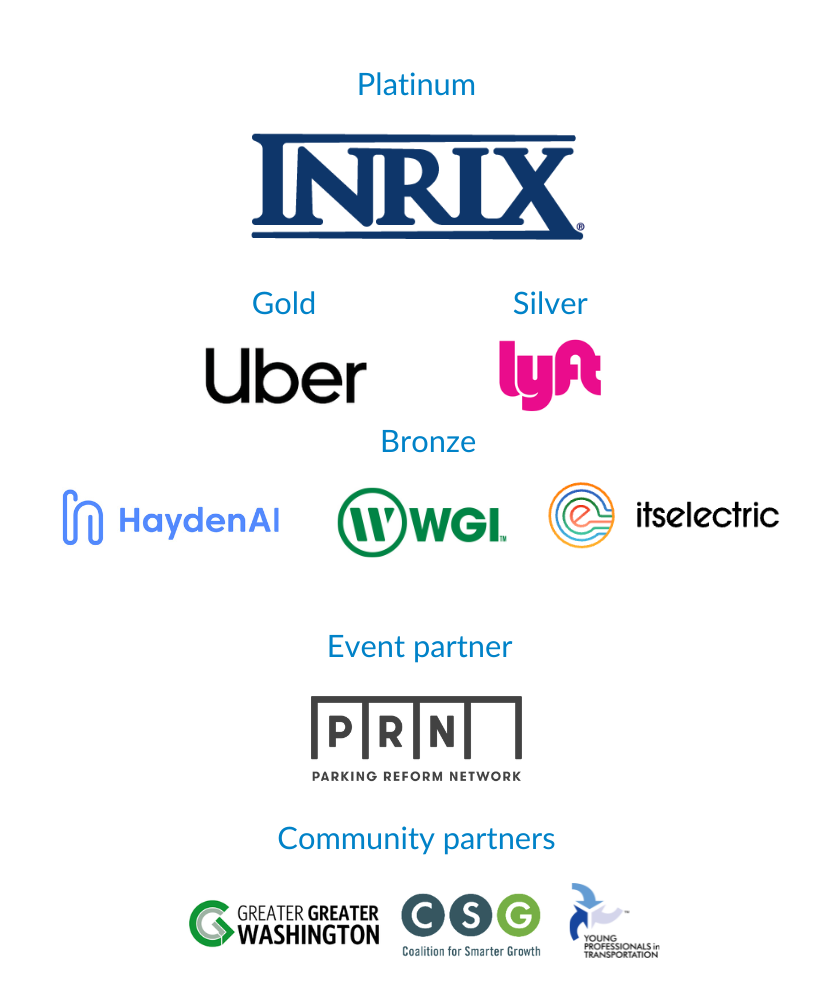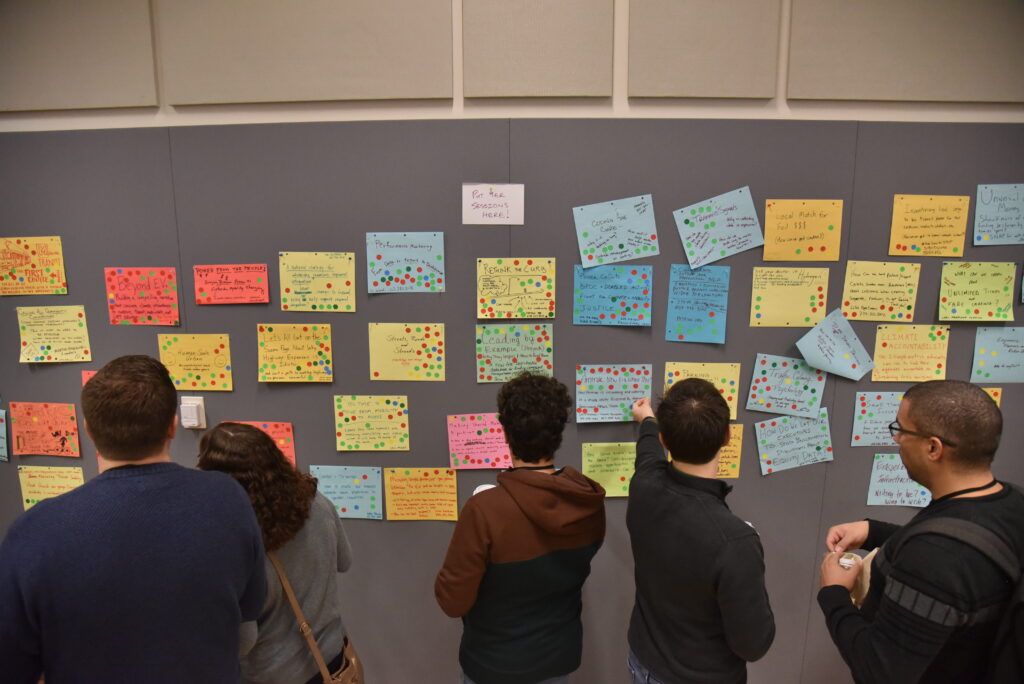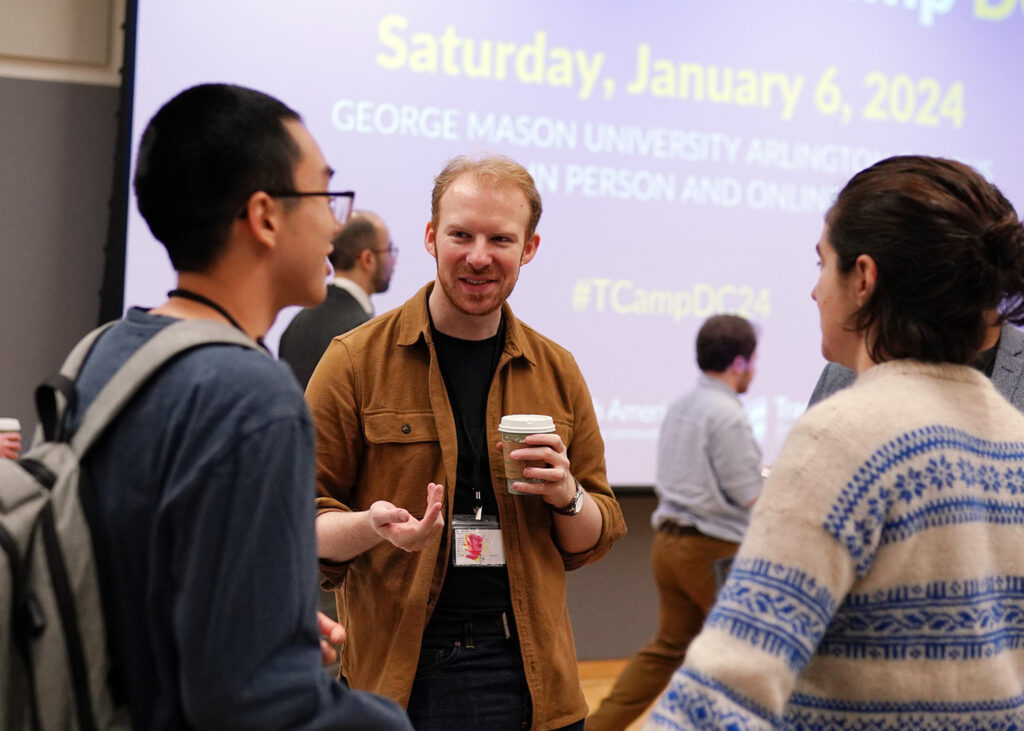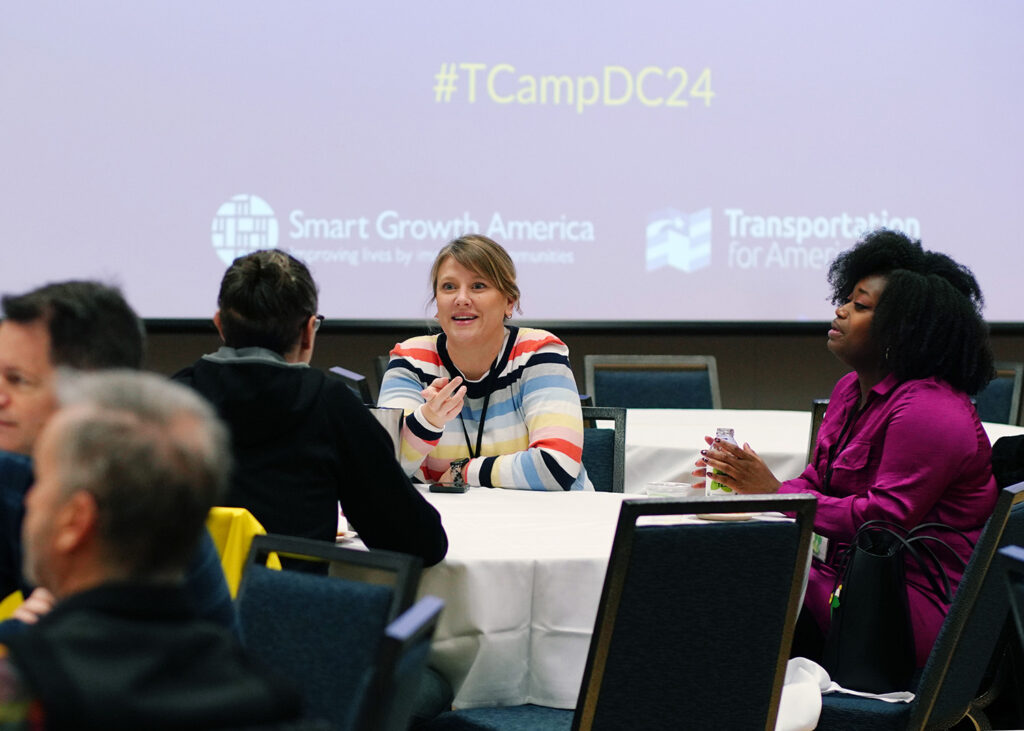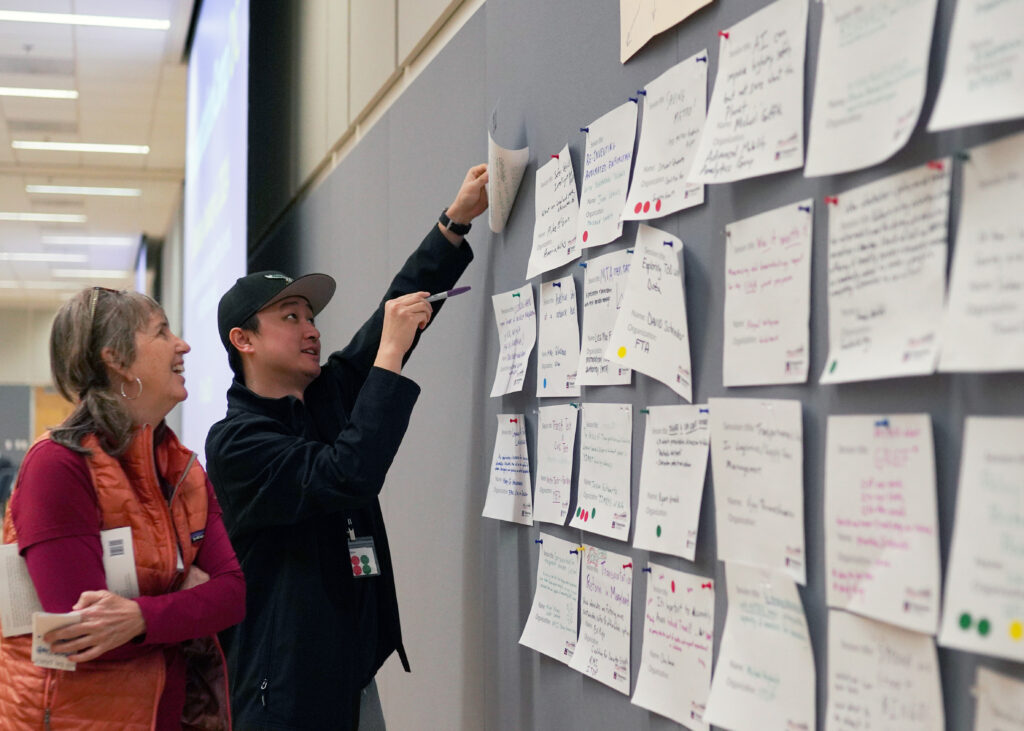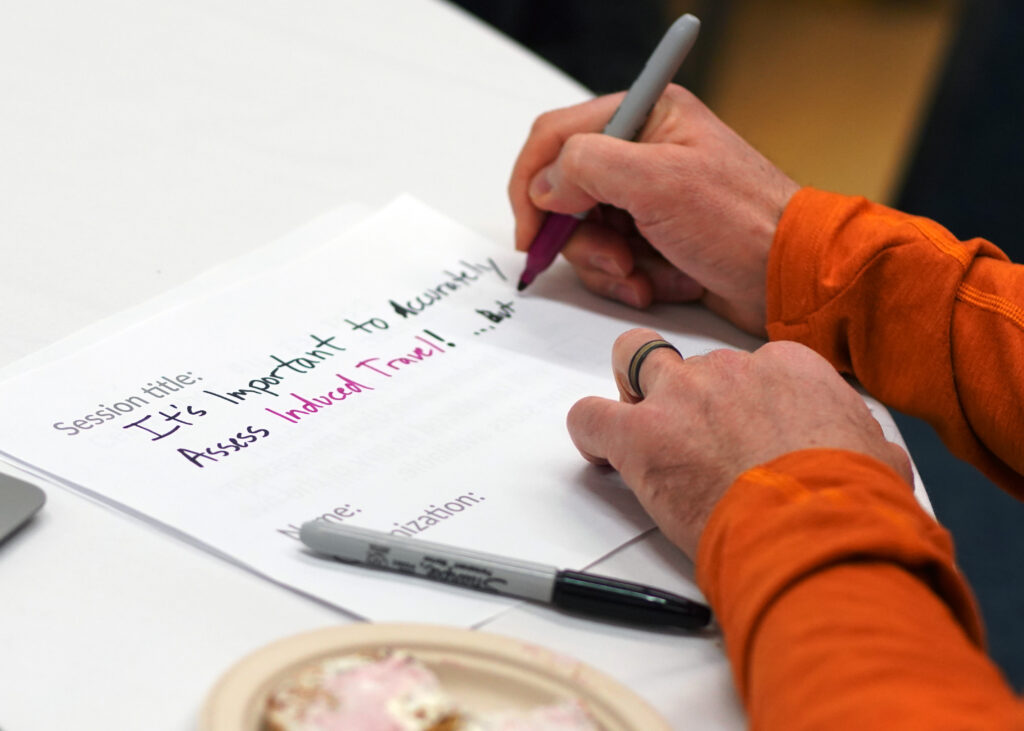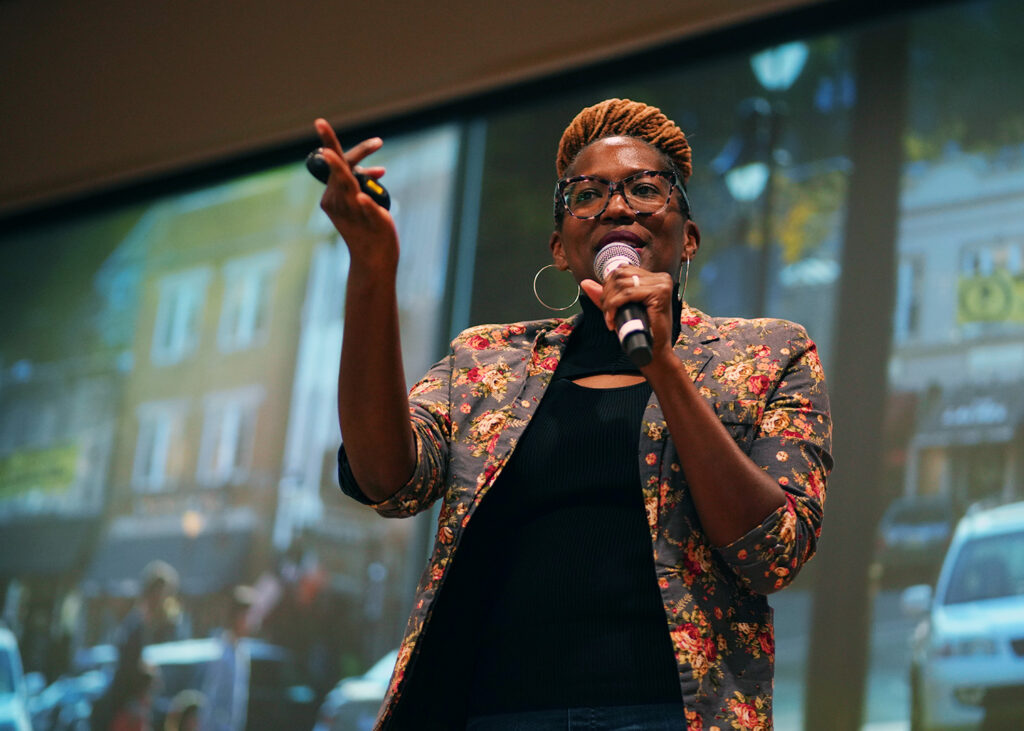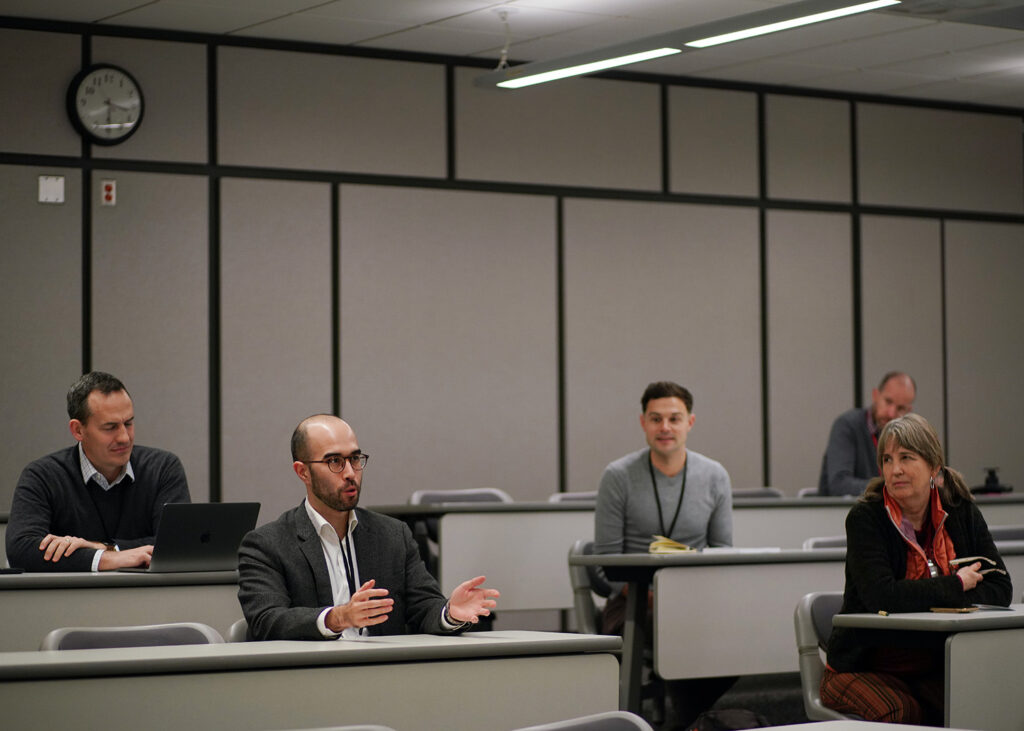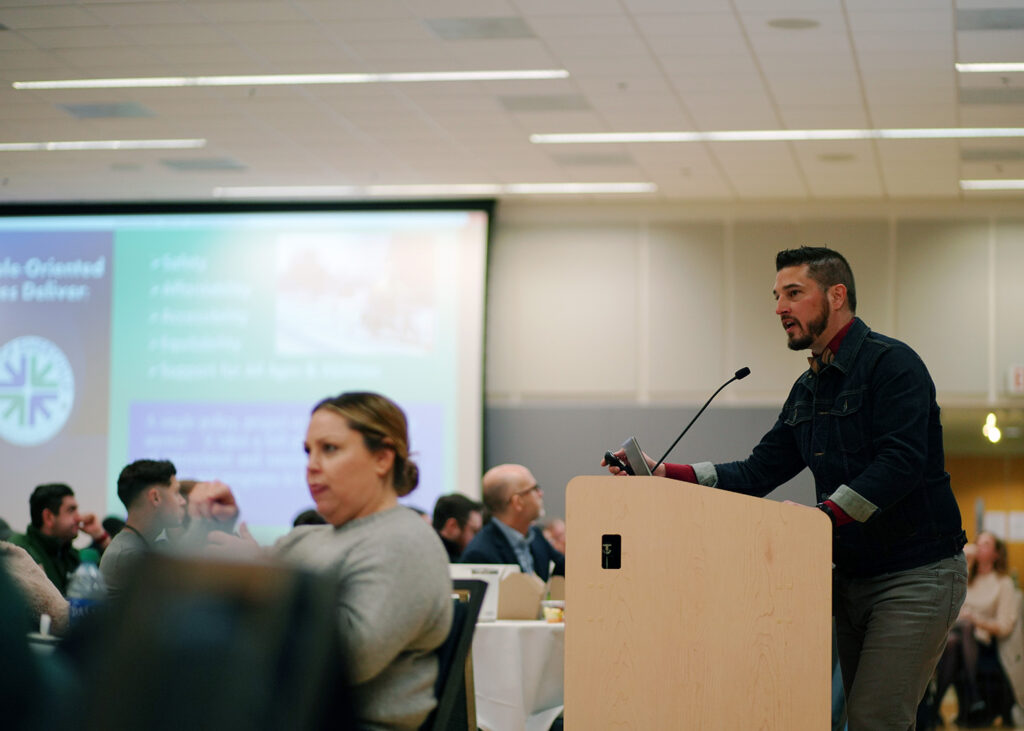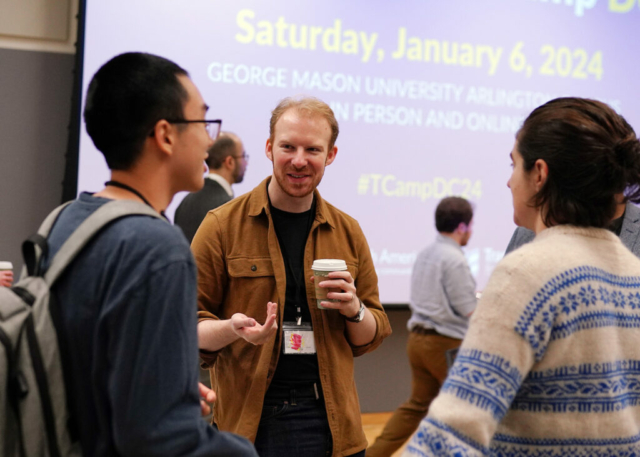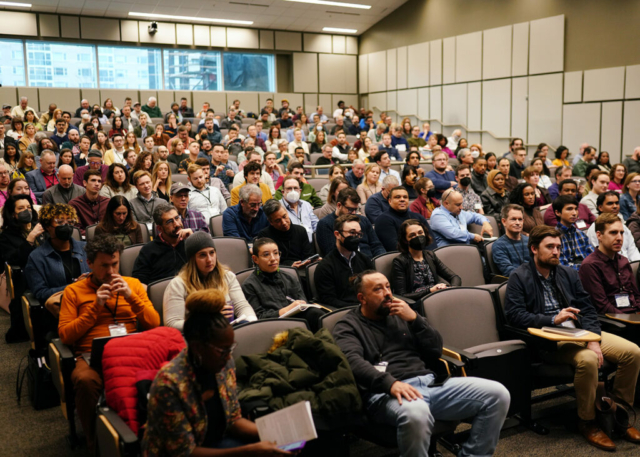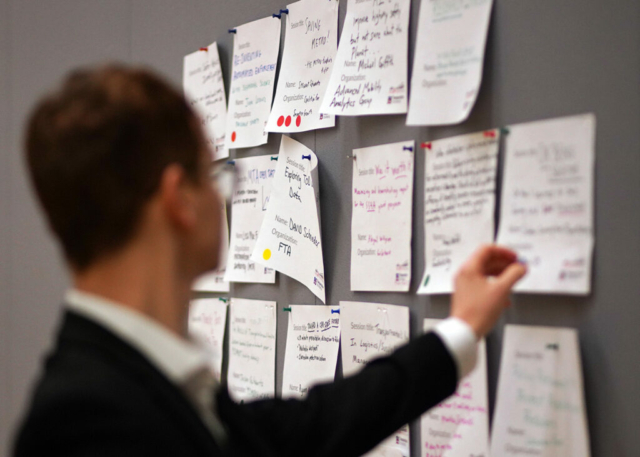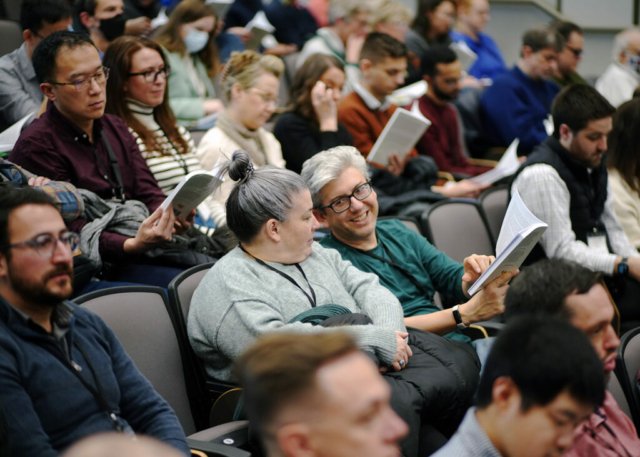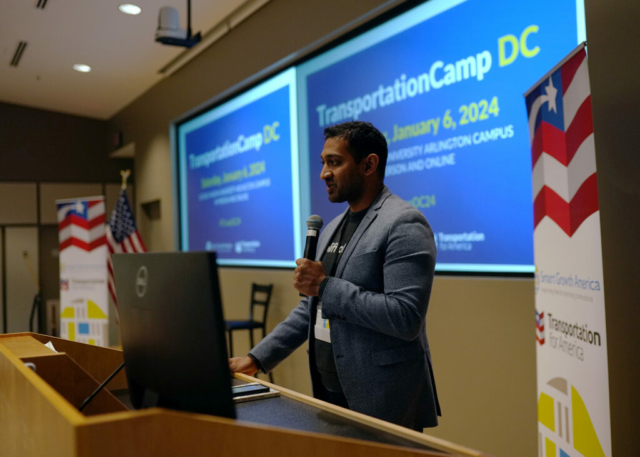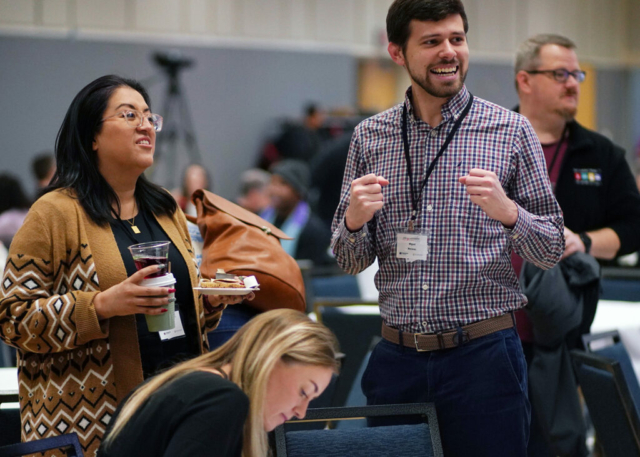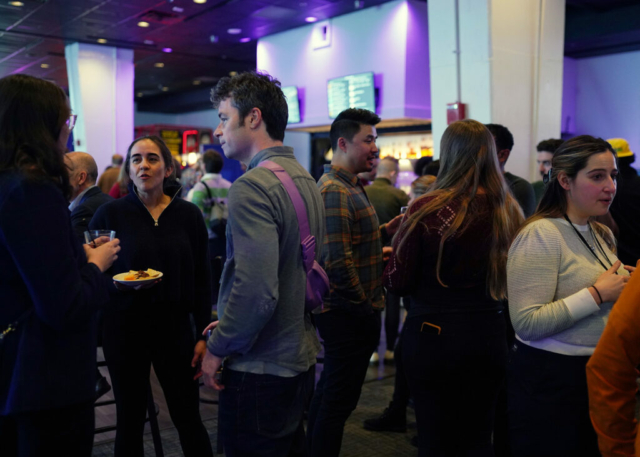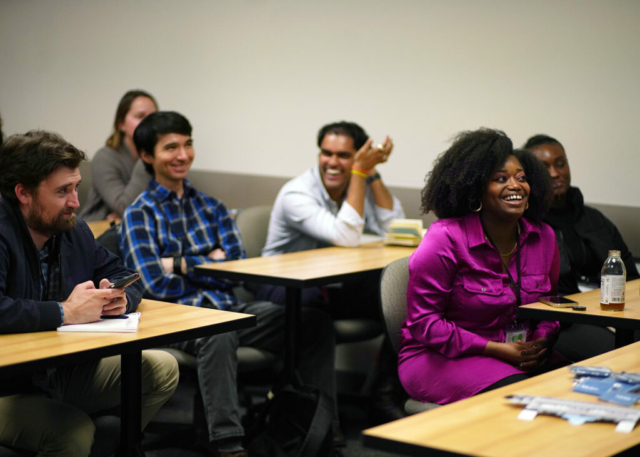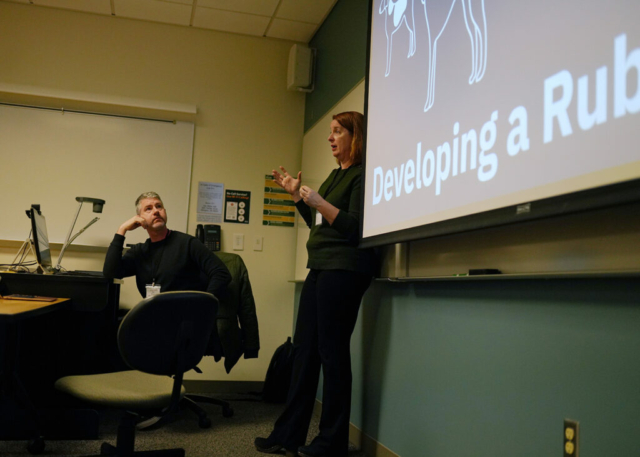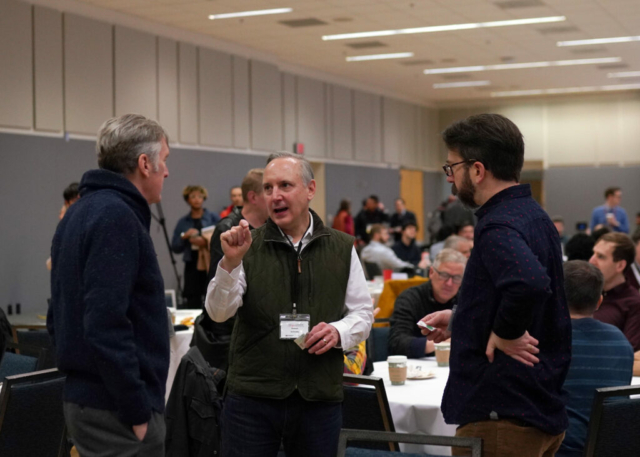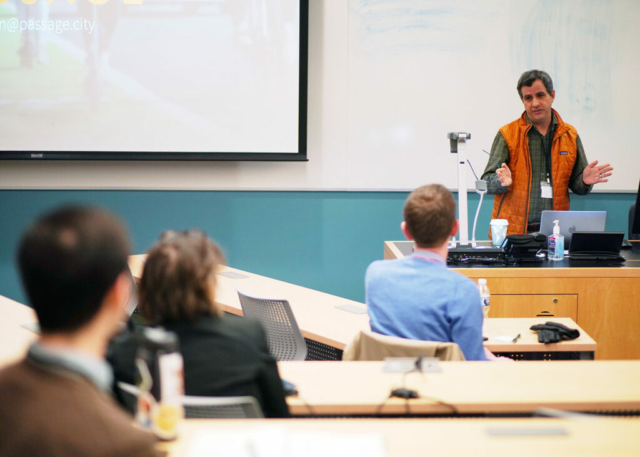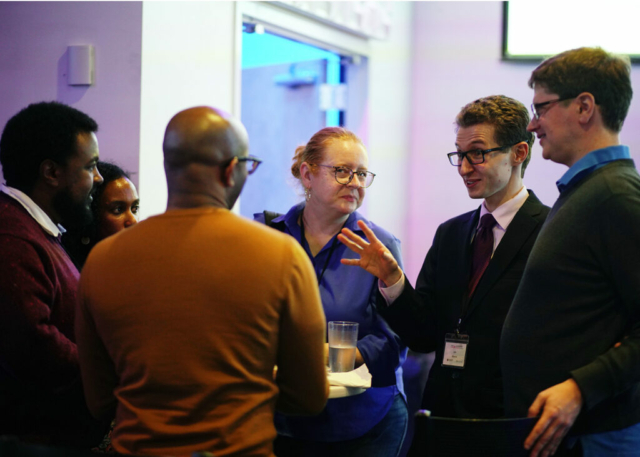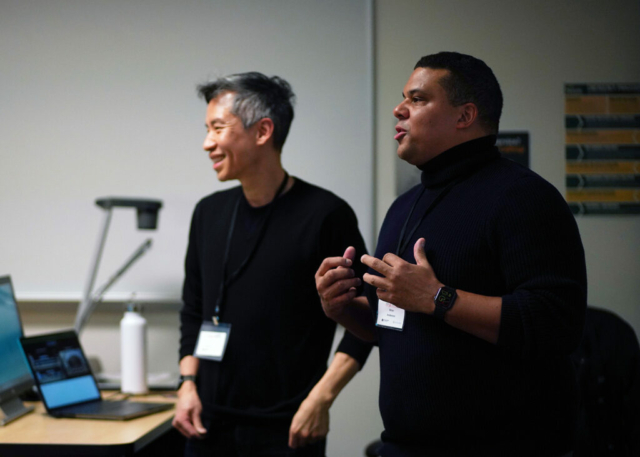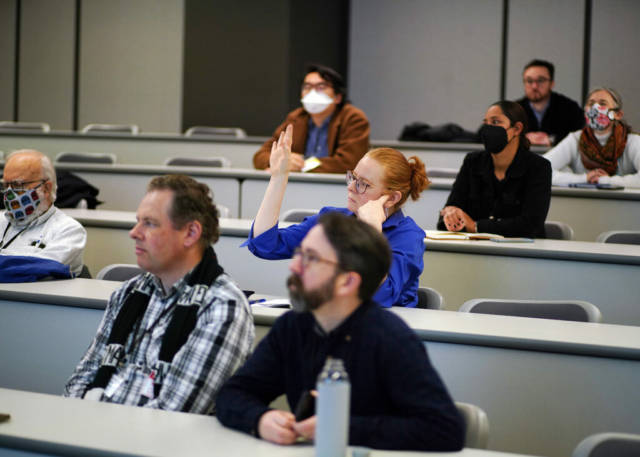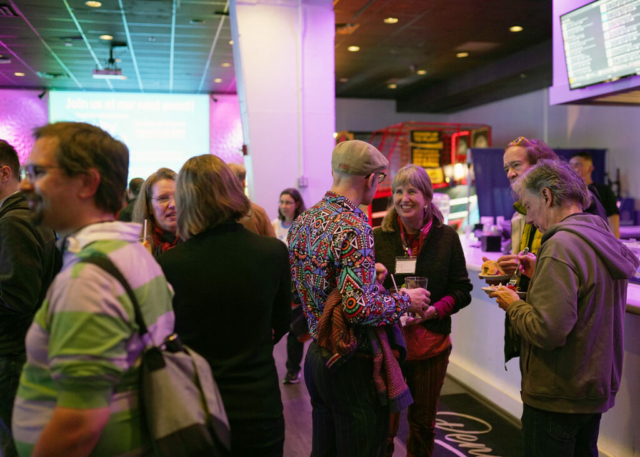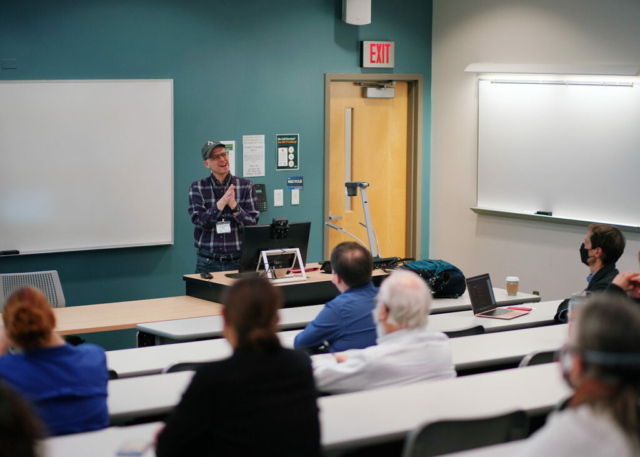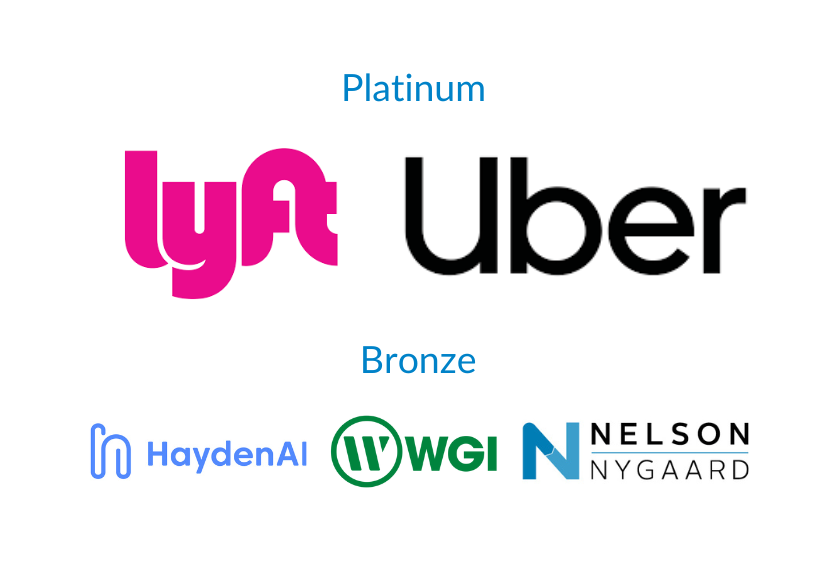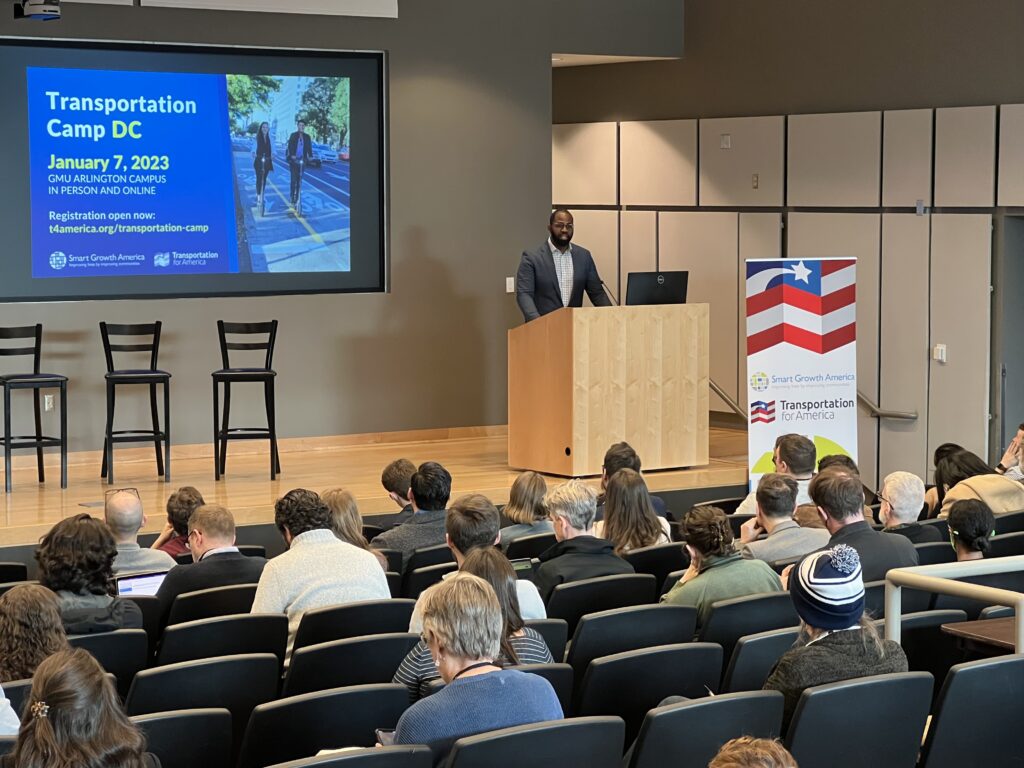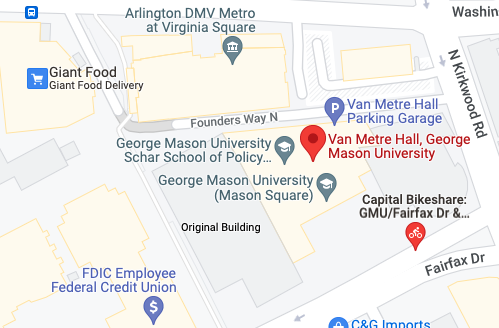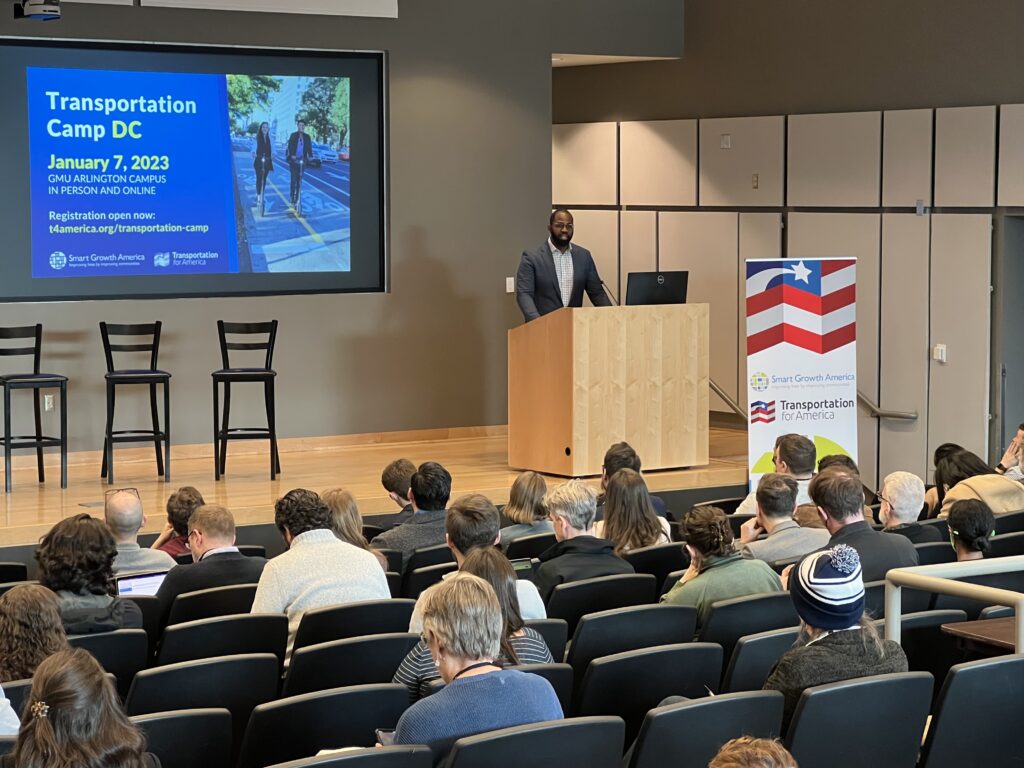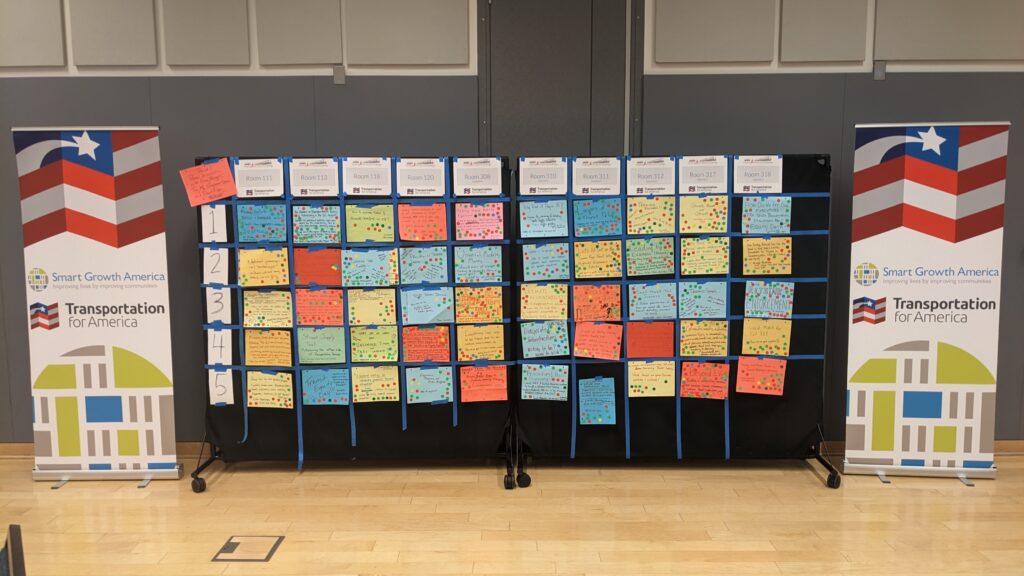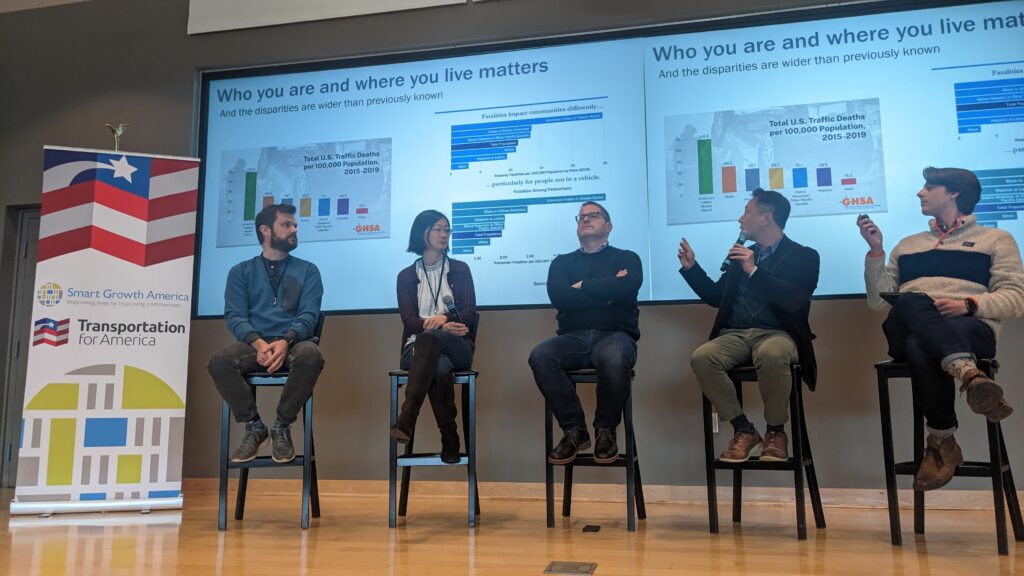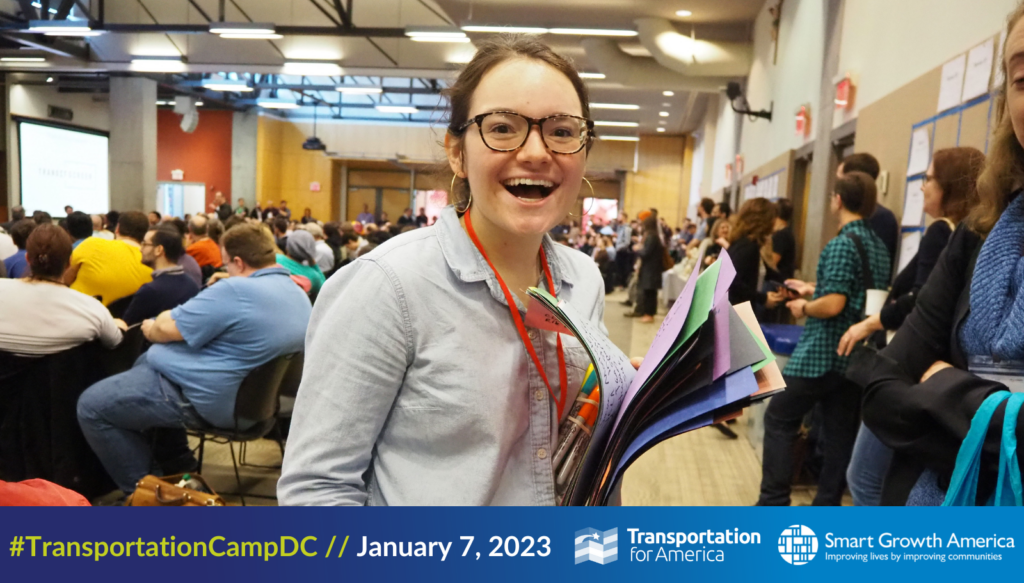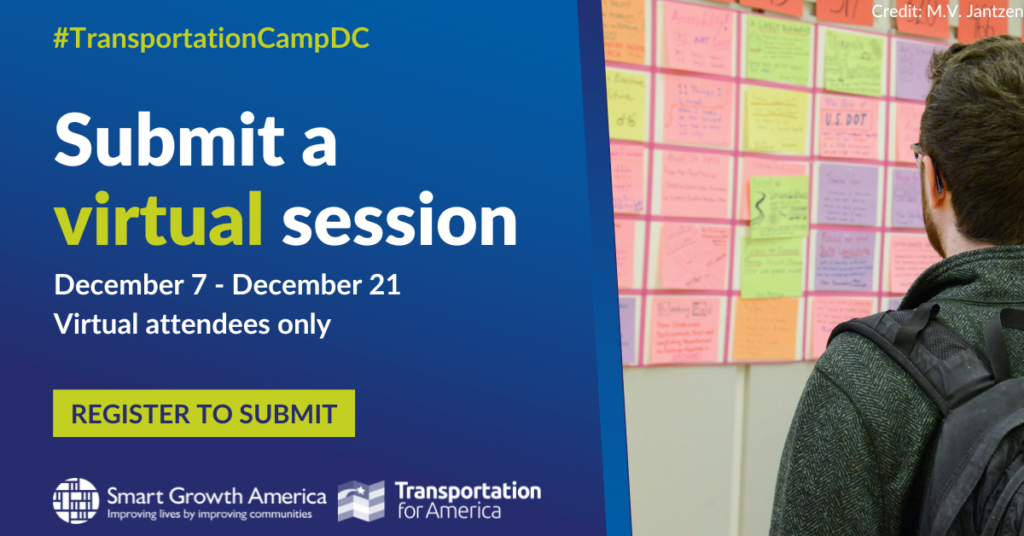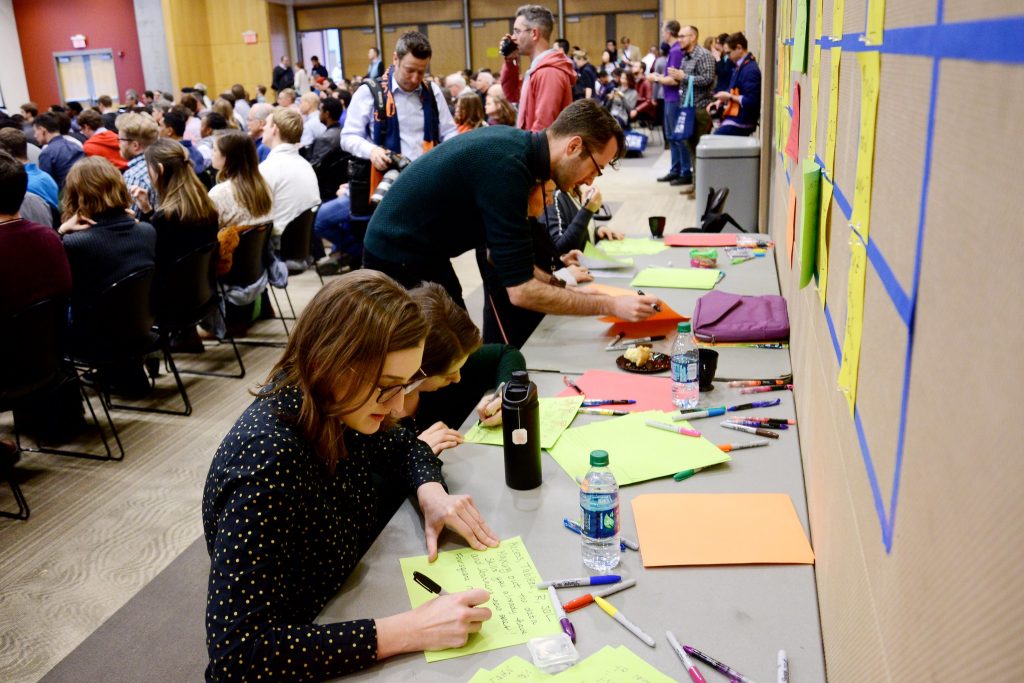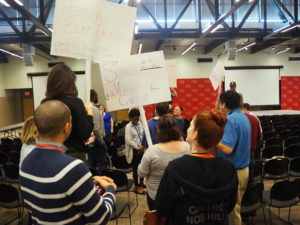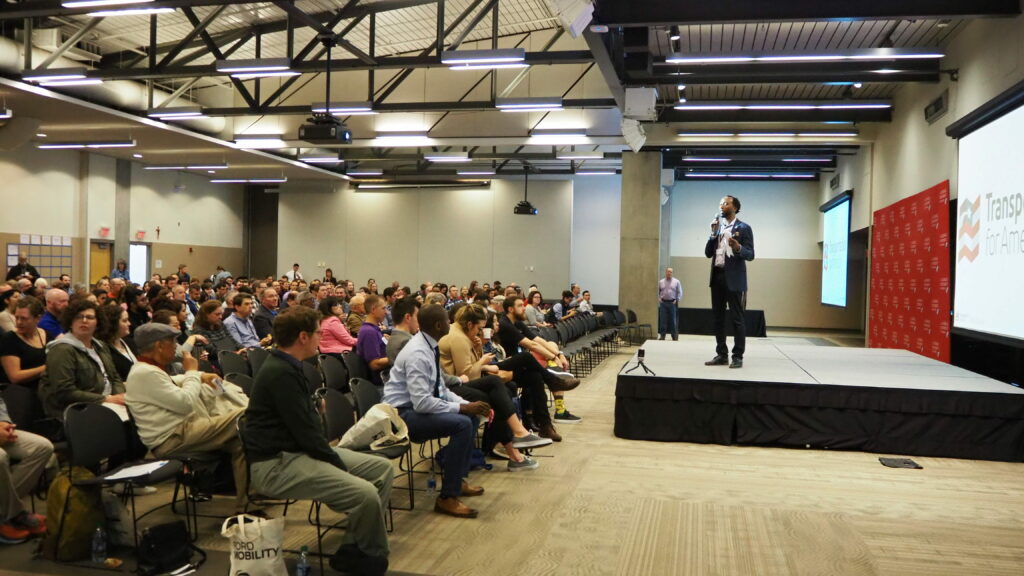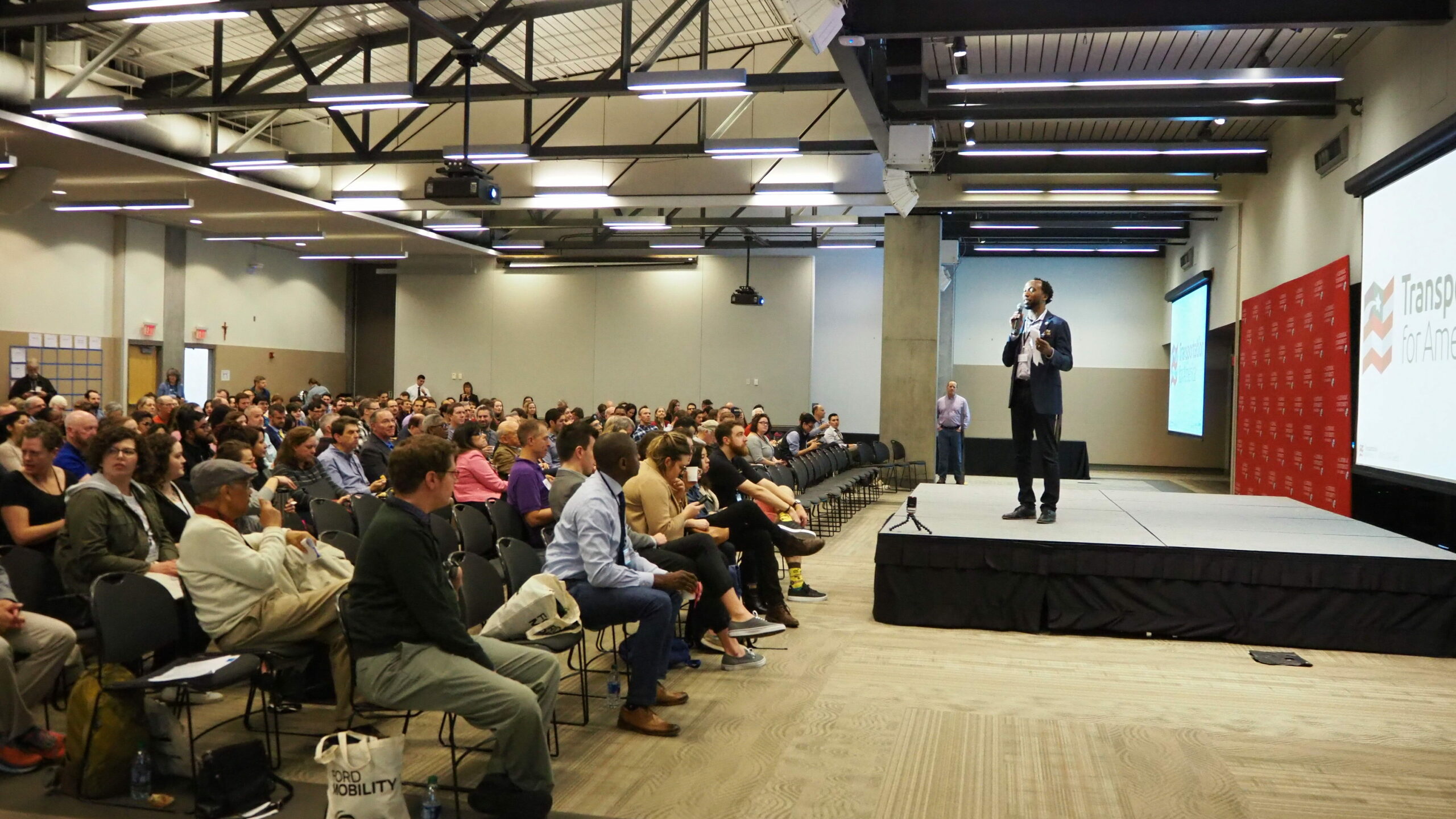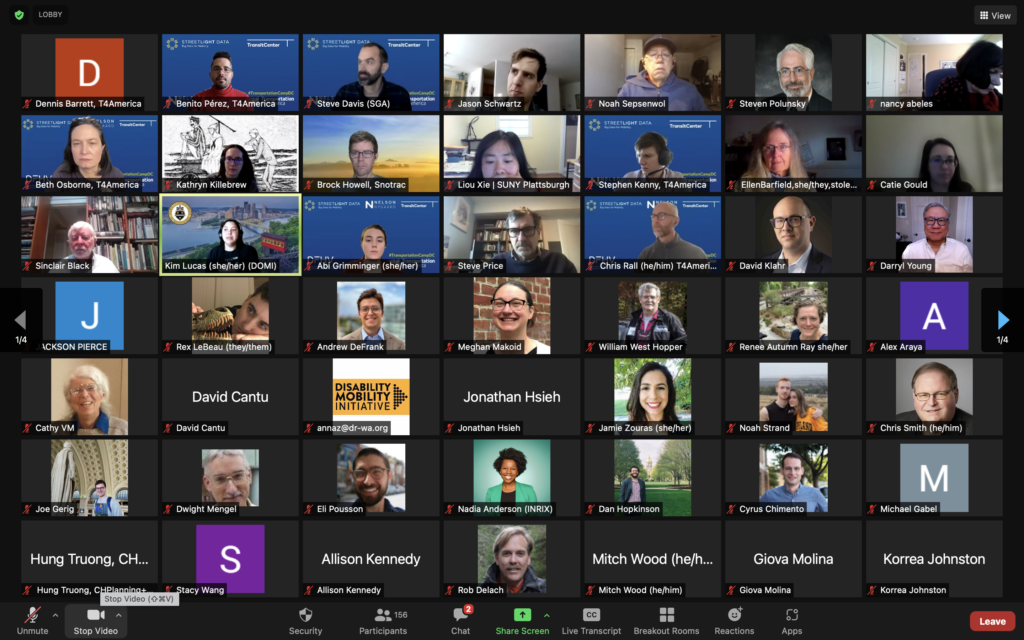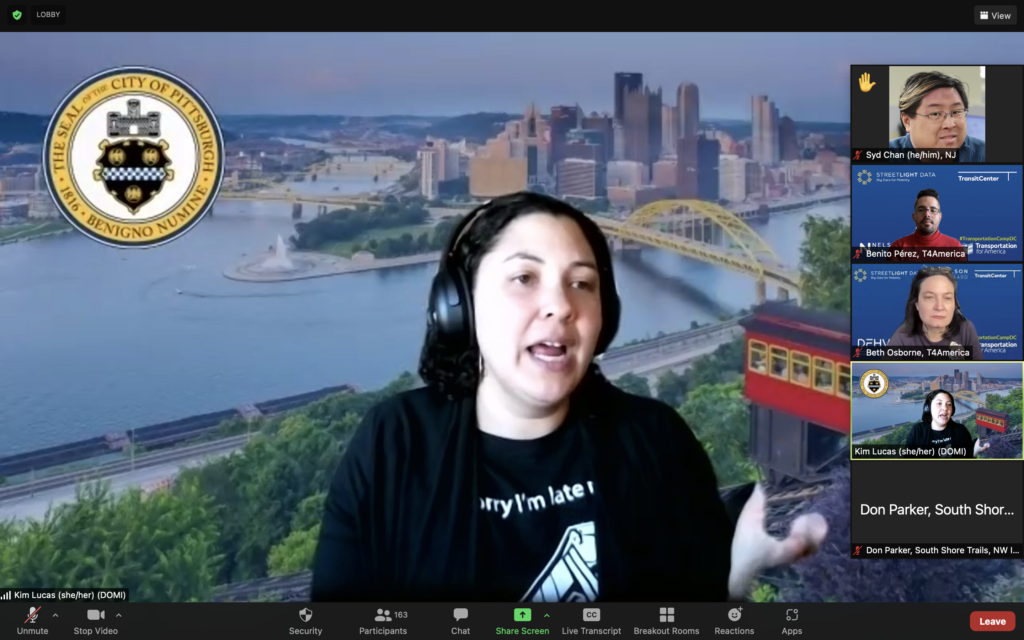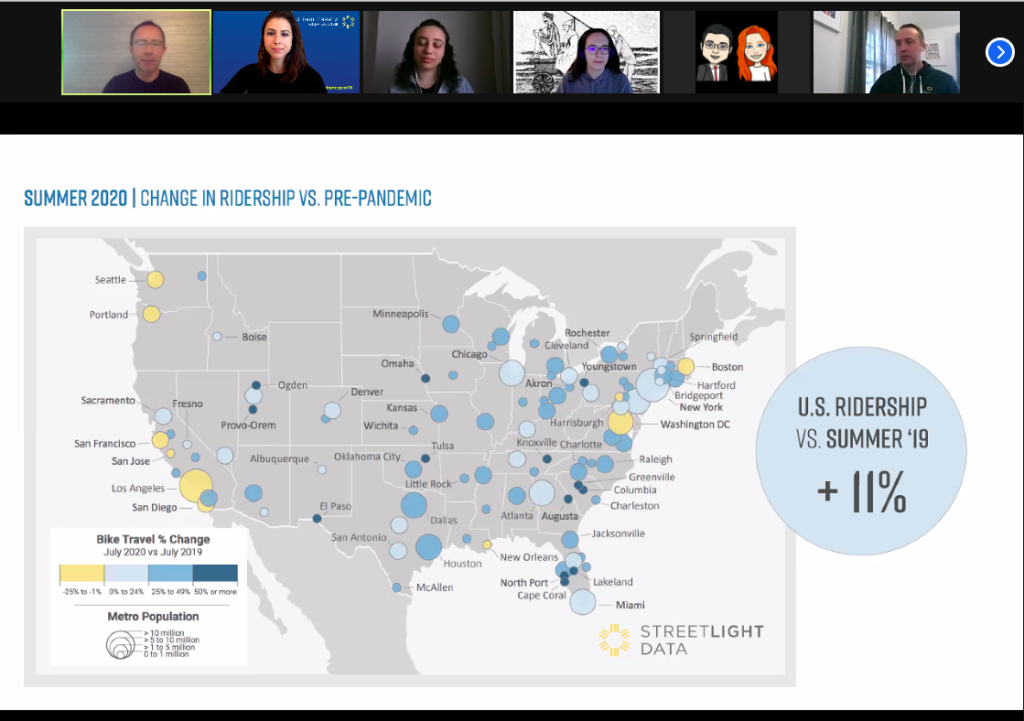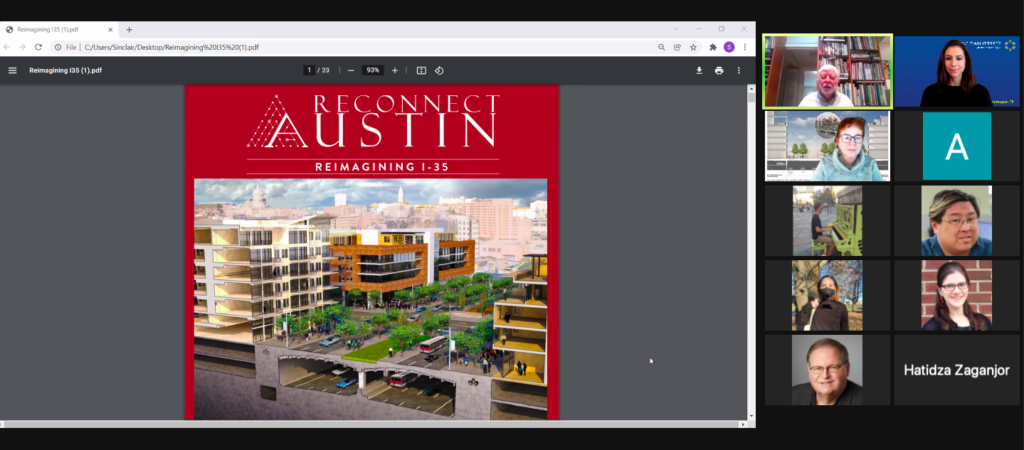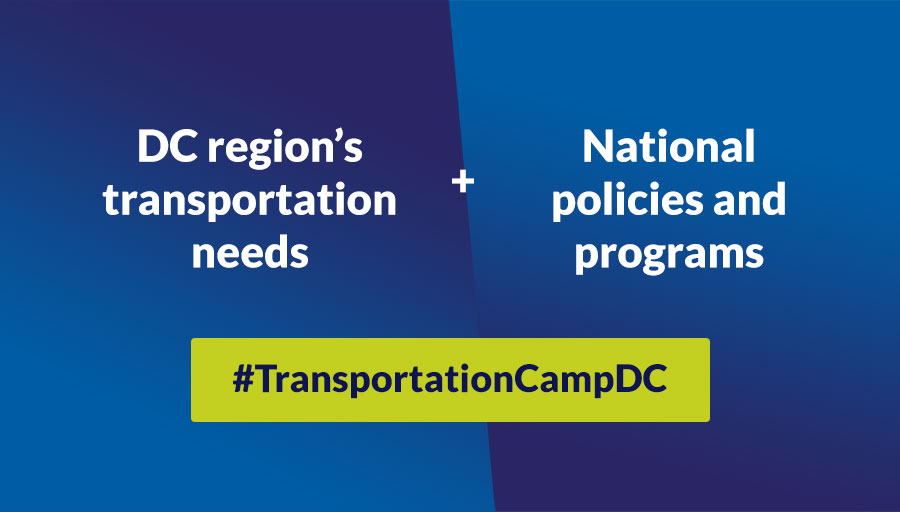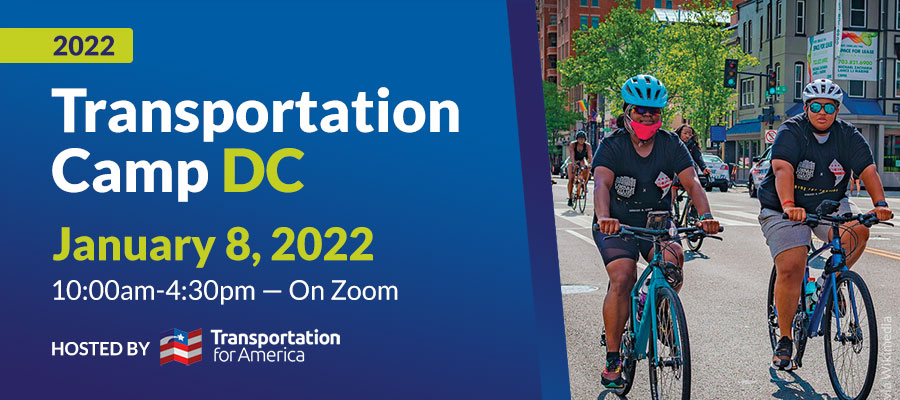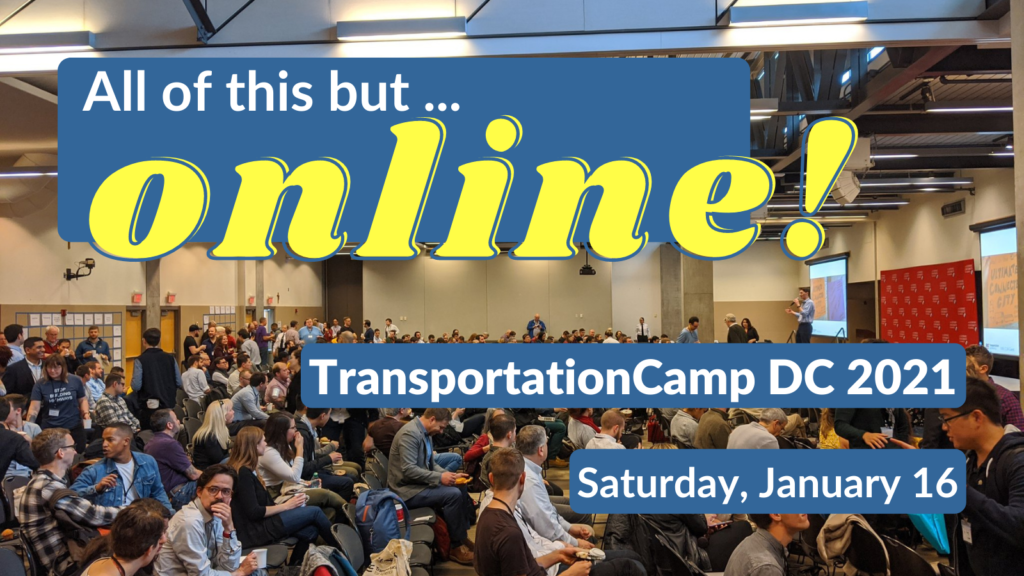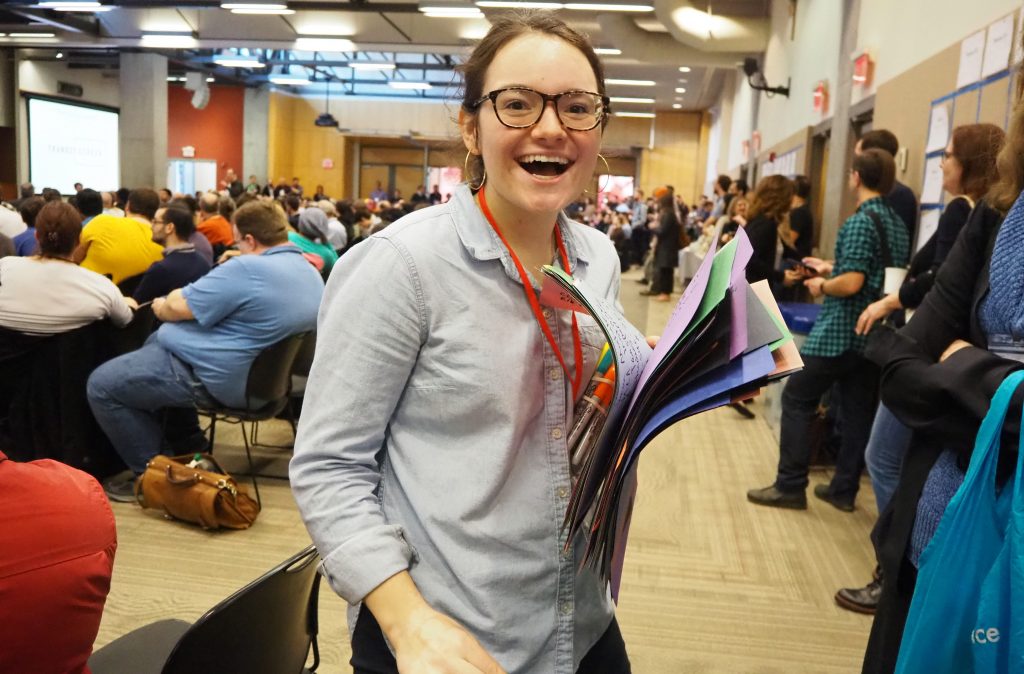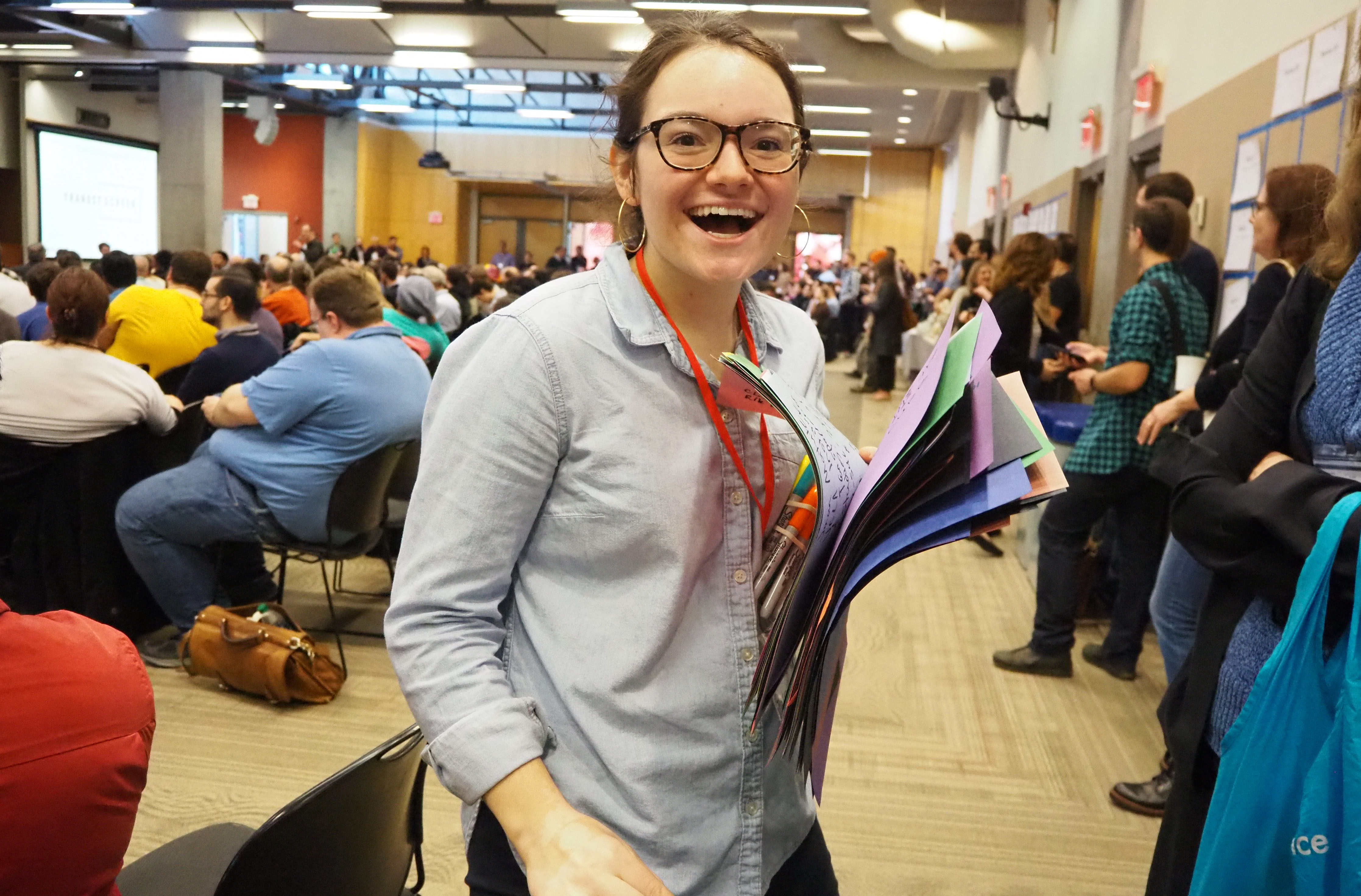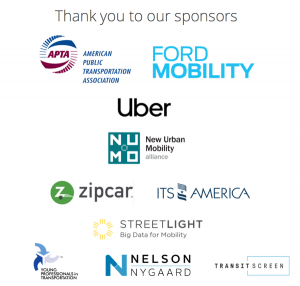Just before the start of the 102nd annual (and massive) Transportation Research Board meeting in downtown DC, more than 300 passionate and knowledgeable transportation pros and advocates gathered on the other side of the river in Virginia (with over 100 more tuning in online) for an incredible day of spontaneous learning. Here’s a few things we learned or heard.
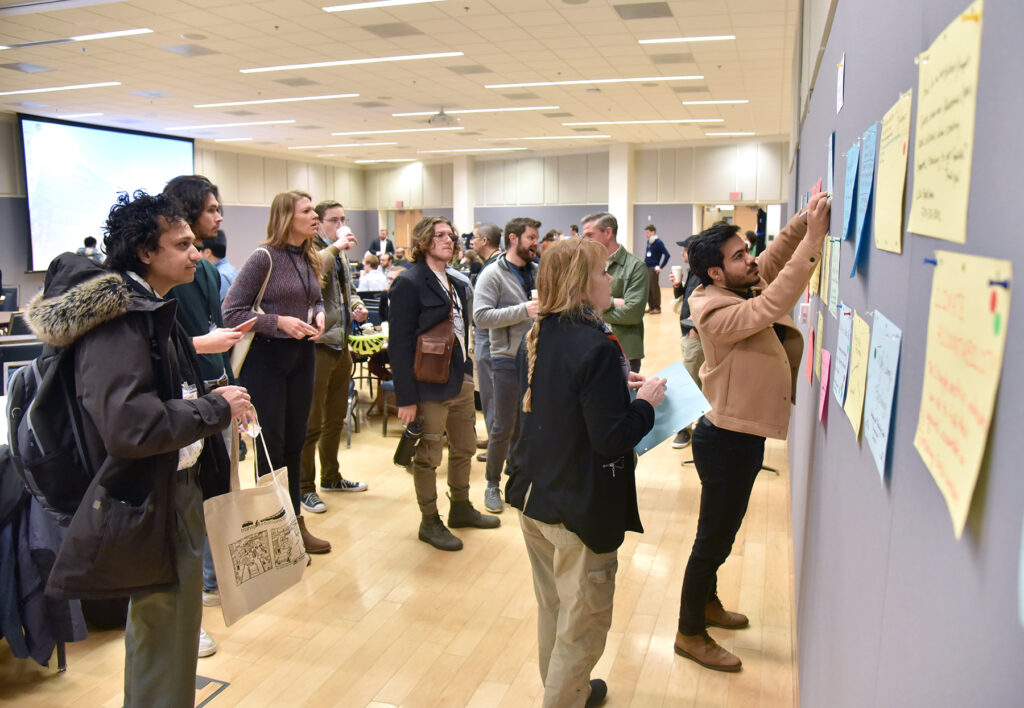
Transportation Camp is always a leap of faith—both for us on the organizing side, and for every single person who shows up early on a Saturday morning. Because the agenda is created by participants, other than a keynote speaker and a panel discussion, there’s no real guarantee there will be anything more. But year after year, an incredible group of people meet up, propose a surprising range of sessions and topics, and everyone’s faith is rewarded. This year was no different.
TransportationCamp is truly a “you had to be there!” sort of experience, but here are five things that we took away from another great event this year:
1) Power is in the people, and the level of participation is truly impressive—down to the youngest Camper
For those who have never attended, the day always begins with breakfast and a giant empty wall for session proposals. Any Camper can propose one, and the proposals truly span the range from someone presenting on complex academic research down to “I have an idea I want to discuss.” Just as impressive as this wall being quickly filled up with session proposals is the fact that somewhere in the range of 20 percent of all participants propose a session. We had somewhere in the range of 65+ sessions proposed. With 50 available slots (10 rooms and 5 periods), we combined a few similar proposals and only had to leave a few out entirely as we finalized the “big board” schedule for the day.
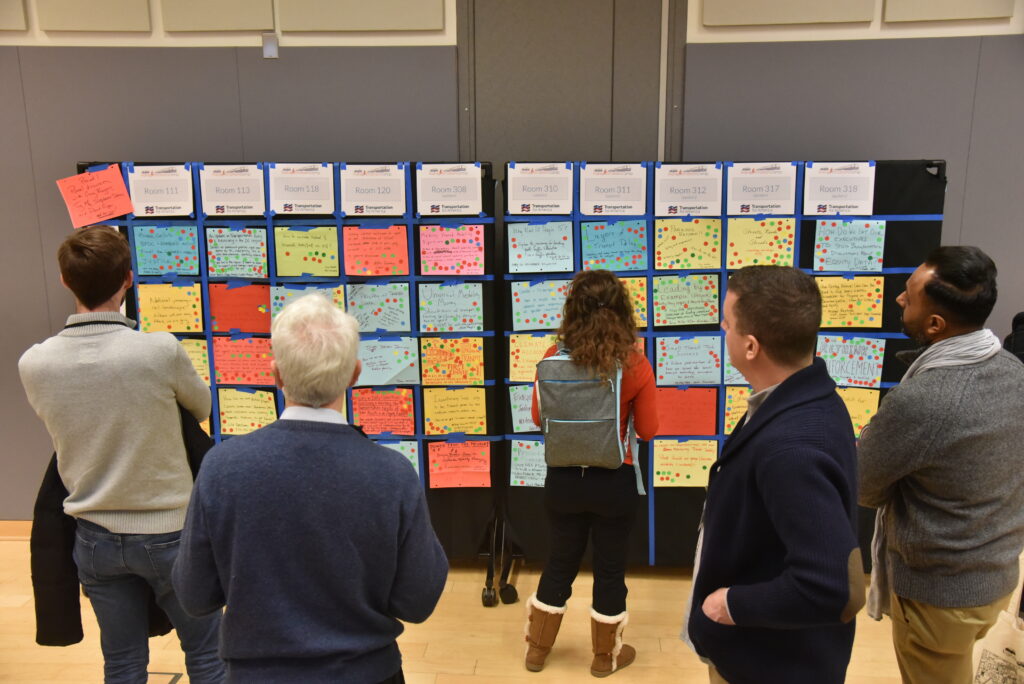
As a parent of three kids who bike and transit in the city, my personal highlight was a session proposal by an eight-year-old (!!) about making it safer and more convenient for kids to bike. (She was attending with her parents who run a transportation startup, itselectric, but it was her idea!) After a wide ranging discussion with the 15-20 people who showed up, she assembled the group’s final recommendations on a whiteboard:
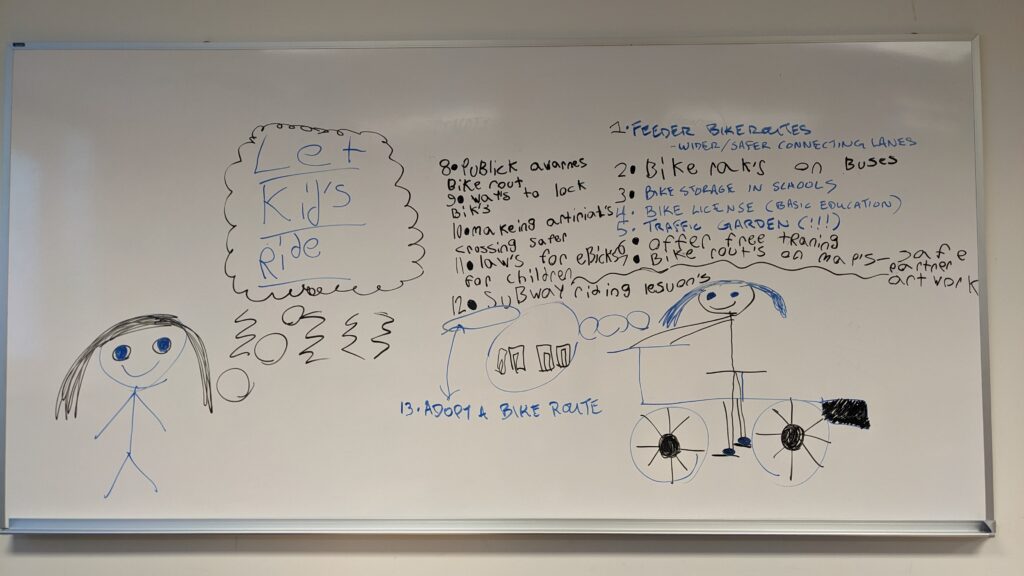
2) This year’s hybrid format provided an expanded way to participate
Covid hasn’t just disrupted travel and commuting patterns (a session topic this year, of course!) So our hybrid format allowed people to participate who couldn’t be physically present. The keynote and the panel discussion were live streamed, allowing everyone to participate together. And then we had a handful of sessions that were virtual only—including a look at predatory microtransit (from a labor angle) and the unique challenges of making the case for active transportation in rural areas—and a few in-person sessions were repeated for the virtual-only audience during the breakout periods.
It can be nerve-wracking to submit a virtual session without cues from other Campers to help you form ideas and a plan. Even more so when you, like in-person Campers, have very limited time to put the finishing touches on a presentation! But our virtual attendees delivered, and some even took to Slack to share their reflections, notes, and presentation materials between sessions with both in-person and virtual attendees.
3) Have an appetite for something different? This is a great place to find “your people”
Students, activists, professionals, advocates, nerds, planners…for anyone who thinks our overall approach to transportation wastes our money, fails to connect people to jobs and opportunity, puts people in danger, and produces inequitable outcomes, TransportationCamp is a great place to find your crew. While we love participating in TRB during the week that follows, you never know if you’re striking up a conversation with someone who thinks the status quo is just fine. There’s always some investigation required, you know?
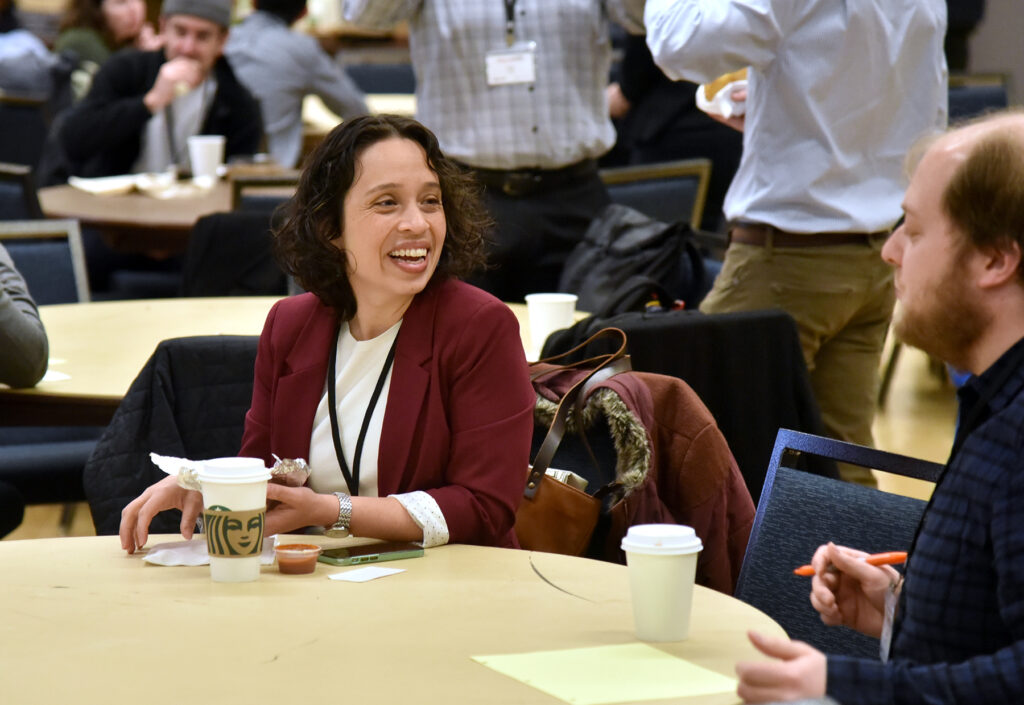
TCamp is what it is because most participants share some core values about overhauling our approach to transportation spending and policy from the federal level down to every local street. This like-mindedness, while certainly still spanning a range of different perspectives, makes both the sessions and the endless side conversations so rich and rewarding. There’s an element of trust between participants that makes it easy to have challenging conversations and disagreements, and that’s not always easy to find.
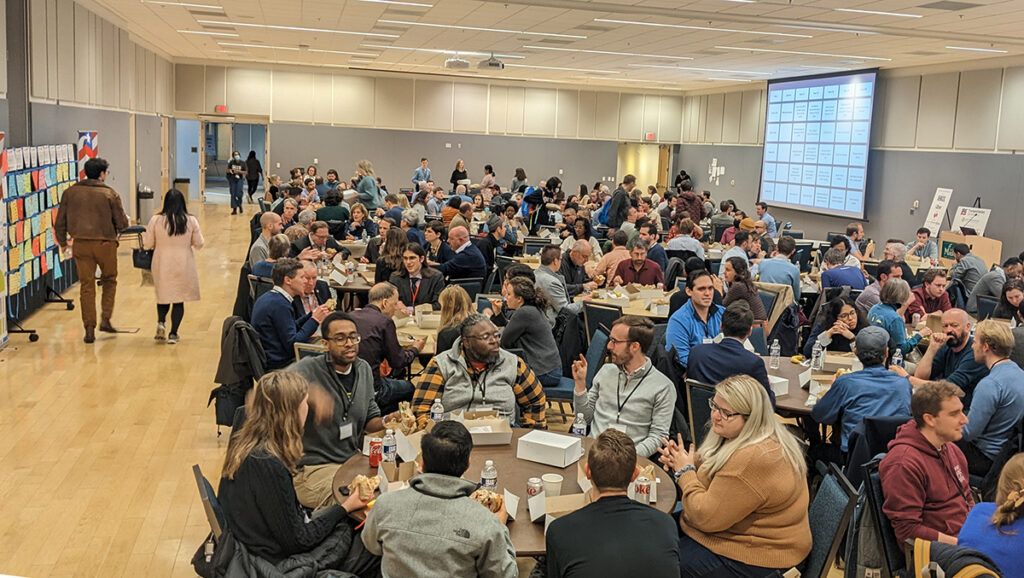
While TRB largely requires deeply researched presentations or papers to get onto the agenda (a model which has its place), the informality and inherently collaborative environment of TCamp allows presentations on issues that don’t easily come up at other events, or which are really about just teeing up a good, open-ended discussion with engaged, interesting people.
4) Speaking of side conversations, they go on all day (and night)
It was an uphill battle trying to coax participants out of the large multipurpose room and into the first sessions of the day. After an hour or two of meeting and networking with other attendees in the large room, a huge number of people just didn’t want to stop. Keynote speaker Shabazz Stuart kicked off the day talking at length about how much of the entrepreneurship in transportation has failed because venture capital has demanded short term profits over long term sustainability. All day long after that, I periodically saw him talking to two or three people at a time who were constantly approaching him to chat.
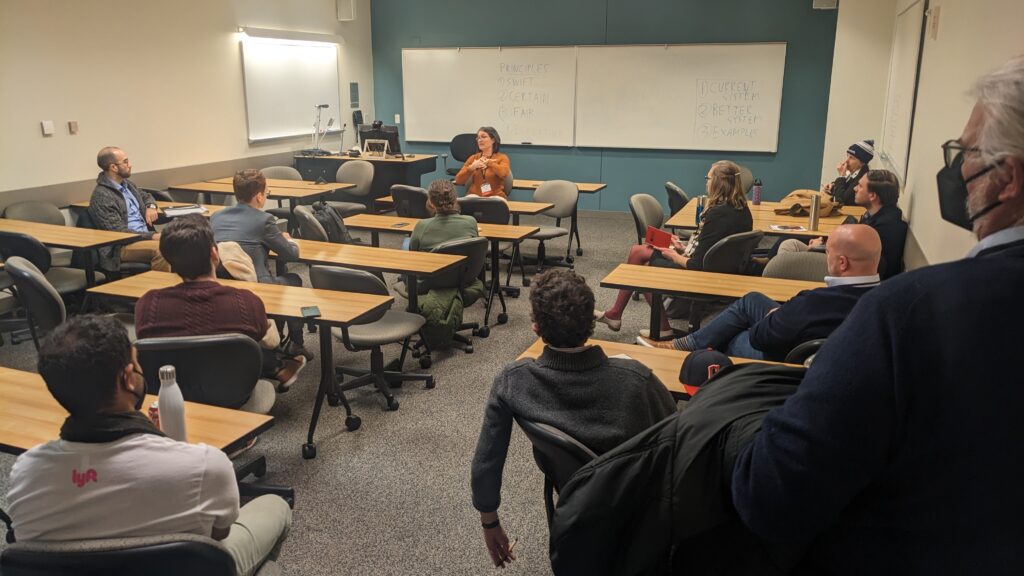
And thanks to our platinum sponsor Inrix, when Camp formally ended, a huge share of the attendees took the Metro eastward into the District for our first ever TCamp reception, continuing those conversations deep into the night, with occasional breaks for photos. Speaking of, meet (some of) our Smart Growth America and T4America staff!
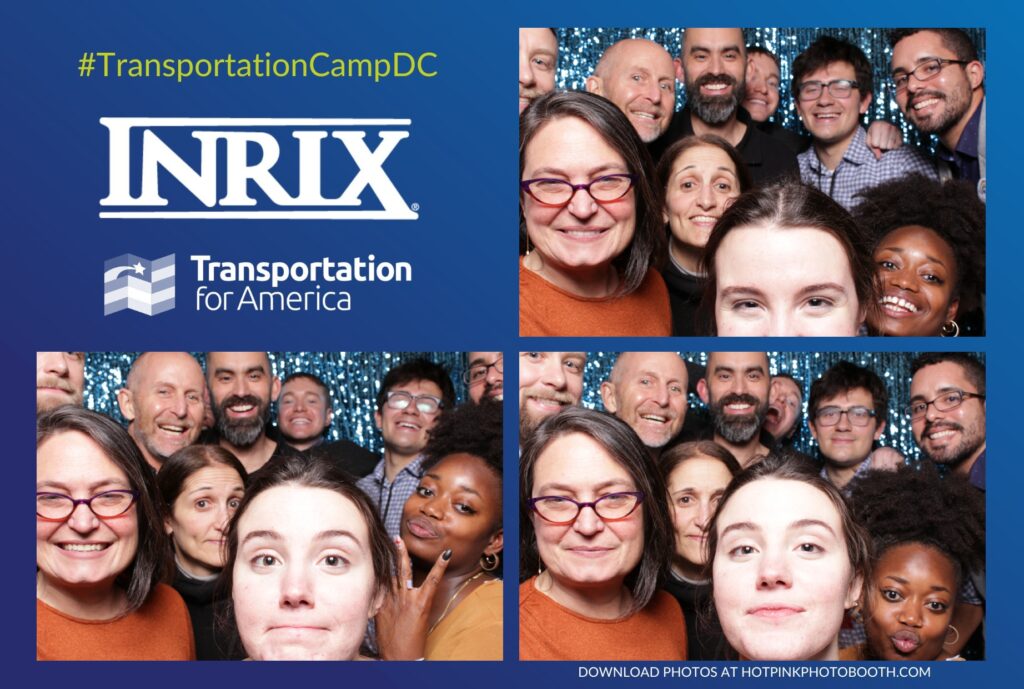
5) Some of the longest lasting impacts are invisible—for now
What important connections were made at TCamp? Who will end up in a new job as a result of someone they met this year? Who had a germ of an idea turn into something that will be a tangible project on the ground this year or next? What research was proposed that will turn into a paper or report to fuel some good advocacy somewhere? Who had their perspective changed in a way that will impact a local issue where they live? There are always a few stories like these we hear from time to time.
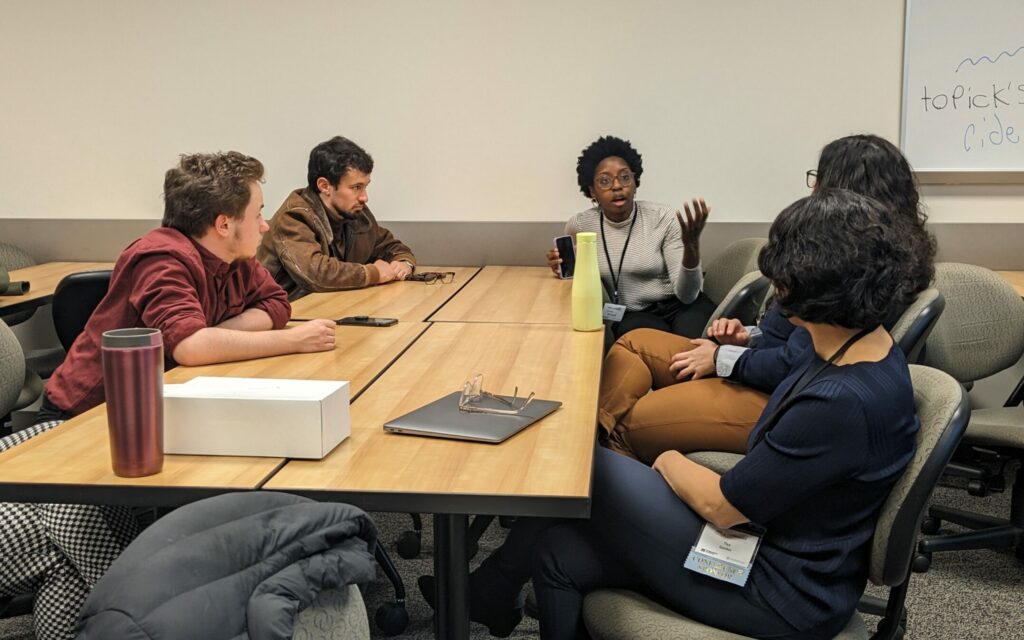
As just one example, we realized this year we were introduced to Ben Holland from the Rocky Mountain Institute at a TransportationCamp, which ultimately led to our work together to produce and release the SHIFT Calculator to quantify the impacts of induced demand from new highway expansions. Other Campers will surely have similar stories down the road. That’s the kind of collaboration that so often springs out of Camp.
One last thank you to the army of volunteers who showed up early on Saturday to help organize things and keep the day running smoothly. We couldn’t have done it without you.
And TransportationCamp would literally not happen with the hundreds of people who show up and propose and attend sessions. We thank you for coming out and hope to see you again!
And one last time, a big thank you to our sponsors INRIX, Uber, Lyft, Hayden AI, WGI, and itselectric, as well as our partners the Parking Reform Network, Greater Greater Washington, the Coalition for Smarter Growth, and Young Professionals in Transportation, for being a part of this terrific event and making TransportationCamp possible.
